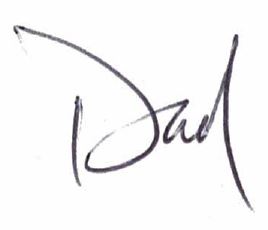Raise a child to seek questions, not answers
 Greek philosophers have sought their sibyls with questions on humanity; as did the Romans to their oracles. Indian philosophers have for centuries sought guidance from the Vedic and Śramaṇa traditions; and the Chinese continue to this day to ask for clarity from the I Ching. Even modern day Judaism refers to the Midrash to provide interpretation of words both said and unsaid. But in all of these endeavors and more, seekers of truth are often left with more questions than answers. Seems our curiosity into existentialism is a multi-generational endeavor as we chip away at the wisdom one lifetime at a time. As much as we live in a world where church and state have all but separated, scientists, through their research, continue to visit their natural oracles with questions. And for every crumb of knowledge they obtain, there is an entire banquet of questions that open up to be pondered. It’s like playing a video game with infinite Easter eggs.
Greek philosophers have sought their sibyls with questions on humanity; as did the Romans to their oracles. Indian philosophers have for centuries sought guidance from the Vedic and Śramaṇa traditions; and the Chinese continue to this day to ask for clarity from the I Ching. Even modern day Judaism refers to the Midrash to provide interpretation of words both said and unsaid. But in all of these endeavors and more, seekers of truth are often left with more questions than answers. Seems our curiosity into existentialism is a multi-generational endeavor as we chip away at the wisdom one lifetime at a time. As much as we live in a world where church and state have all but separated, scientists, through their research, continue to visit their natural oracles with questions. And for every crumb of knowledge they obtain, there is an entire banquet of questions that open up to be pondered. It’s like playing a video game with infinite Easter eggs.
I try to raise my daughter with the same approach in encouraging her curiosity and fostering her thirst for knowledge. It is so important for me to answer some of my daughter’s questions with, “I don’t know, let’s find out,” than to make up answers just to offer a simplified response. It shows that even an old dog like me don’t know everything and willing to learn a new trick. The only way to learn something is to ask questions. And that’s what I want her to do at school, on field trips, at play and certainly at work. Not knowing is the only path to knowing.
![]() Not knowing is the only path to knowing. With so many pathways to get to so many possibilities, even today’s right answers are only correct situationally under specific conditions.
Not knowing is the only path to knowing. With so many pathways to get to so many possibilities, even today’s right answers are only correct situationally under specific conditions.
A person who has all the answers comes off as a smug know-it-all. One who dismisses questions that may challenge their paradigm should be suspicious, especially in a multilateral world moving at breakneck pace of the twenty-first century. What we know to be possible today is infinitely more than what we knew last century; but it’s still just a comparative drop to what is knowable in the next century. Today, many beliefs held are often and assuredly disproved, revised and replaced tomorrow. With so many pathways to get to so many possibilities, even today’s right answers are only correct situationally under specific conditions.
When a child starts asking questions, they leave the world of black and white behind and venture into the world of gray. Two fundamental things happened when they do this. First, they set aside a viewpoint and contemplate the possibility that there is more than one answer. It’s the eternal tale having two sides. The realization that multiple truths can coexist at the same time and in the same place immediately cast doubt on the absolute polarity of what is right and wrong. The second thing that happens to a child is when they realize that that there are no fixed answers, they begin to seek one out for themselves. This starts them on a journey that cannot be stopped.
I guess that’s why the Ancients were wise to ask questions. However, I believe the greater wisdom was of the oracles who believed they never had the answers in the first place but instead encouraged the seeker to continue their path to knowledge, enlightenment and wisdom. Somewhere between a skeptic and a cynic is a lesson. The former will seek to interrogate their observations, objectively and methodically. The latter will seek to replace their observations with their own beliefs. I hope my child will figure out the difference. I’m still trying.



